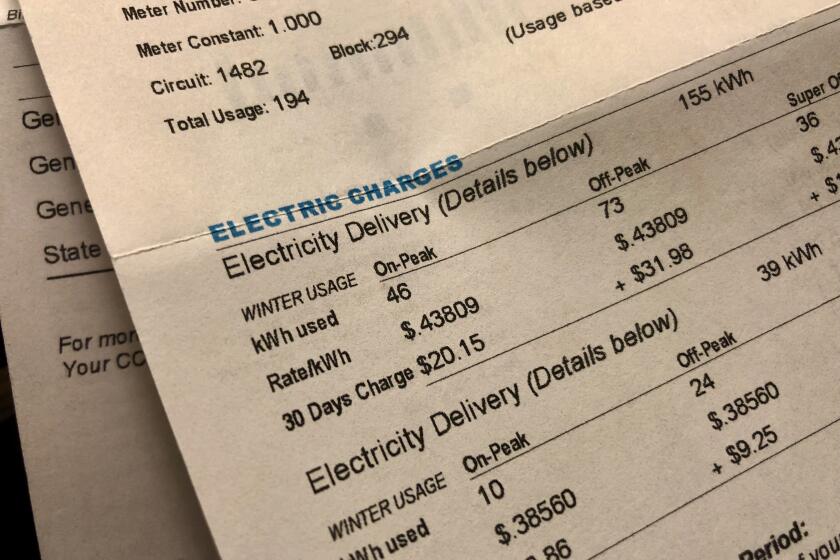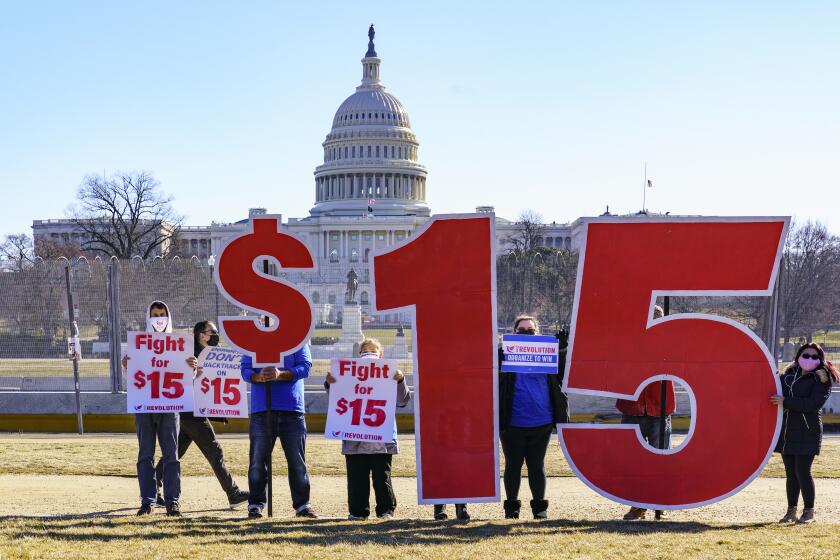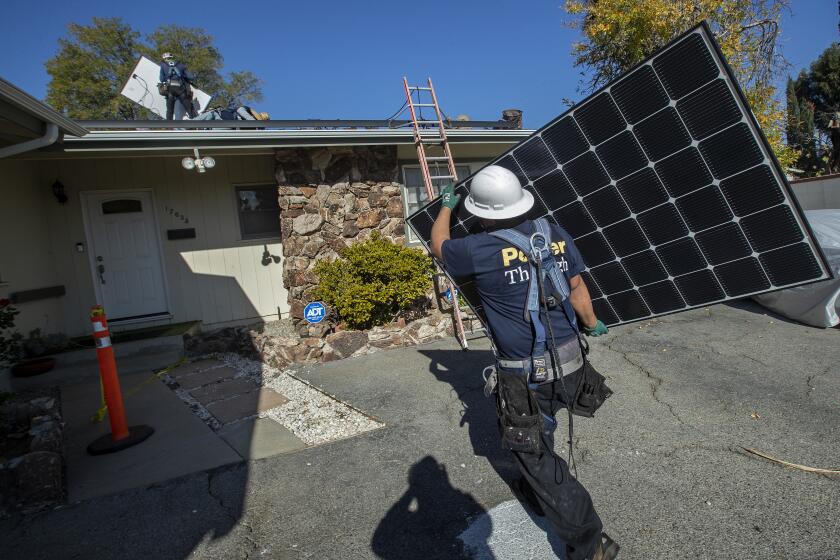Editorial: Californians need electric bill relief. Lawmakers failed to deliver it

- Share via
Californians already pay some of the nation’s highest electricity rates, and thanks to another year of inaction by state lawmakers there is still no end in sight to the steep hikes in monthly power bills.
Pacific Gas & Electric’s average residential electric bill has risen 77% since 2020, while the average Southern California Edison bill has increased 58%. Those skyrocketing bills are straining household budgets and undermining the state’s climate goals by making it more expensive to switch from fossil fuels to emissions-free electric cars and appliances.
The solution is to reduce costs passed on to ratepayers, which have been rising at an alarming clip as utilities spend heavily on undergrounding and insulating power lines so they don’t start fires and upgrading grid infrastructure while funneling the profits to shareholders. But so far state lawmakers have squandered the opportunity to tackle what has become an affordability crisis. Months of discussion over a comprehensive package to reduce monthly bills for customers of PG&E, Edison and San Diego Gas and Electric withered into practically nothing by the end of the legislative session last week.
Electric bills are rising. Here are ways to reduce the burden without slowing the shift to home and vehicle electrification to meet our climate goals.
The most important proposal would have provided Californians with ongoing monthly savings on their bills by changing the way electrical grid and wildfire-related capital investments are financed. But it was watered down in the face of opposition from the investor-owned utilities because it would have cut into shareholder profits. What remained was small-ball legislation to return unspent ratepayer money set aside for public programs like school HVAC upgrades and affordable housing solar installations to customers in the form of a one-time $30 bill credit. And even that failed to pass.
A few modest bills made it to Gov. Gavin Newsom’s desk, including legislation to help customers restore disconnected service, to allow the Public Utilities Commission to require utilities provide more justification for rate increases and to track total household energy spending and study ways to reduce ratepayer costs.
But the big ones didn’t survive, including a bill to rein in utility spending on wildfire mitigation.
The federal minimum wage hasn’t been increased since 2009. Congress needs to act to raise it, and the next president should commit to signing a wage hike.
Lawmakers can do better. But when that will happen remains a huge question mark.
The special session Newsom has called, already cloaked in uncertainty given that Senate President Pro Tem Mike McGuire has refused to convene, isn’t expected to address the issue. It is focused on legislation to protect consumers from gasoline price spikes that have fueled record oil industry profits, which also failed to cross the finish line. By excluding action on exploding electricity costs, the governor and Legislature are ignoring a huge and important part of what’s driving the increasing energy burden.
Californians shouldn’t have to wait another year for relief.
Inflation Reduction Act tax credits are working. Now let’s get those rebates flowing.
Newsom should use his executive authority now to enact policies that can help lower residential electrical bills. It probably wouldn’t hurt to give the California Public Utilities Commission a kick in the pants to start working on short- and long-term solutions.
But it’s not enough. Newsom and other lawmakers must embrace systemic changes to limit rate increases and increase oversight of utilities and their spending. They must stand up to the utilities and force them to take some responsibility for reining in rates so that Californians struggling with inflation are not asked to shoulder the burden alone.
Lawmakers should feel great pressure to deliver solutions for such major economic and environmental concerns. And they should understand that political dysfunction in Sacramento is no excuse for inaction on something as essential as people being able to afford to run their air conditioners and make the transition to zero-emission technology that is necessary for California to reach its climate targets.
Newsom, McGuire and Assembly Speaker Robert Rivas need to rise above their differences and deliver what’s in the best interest of California families — meaningful and lasting relief from rising electric bills as quickly as possible.
More to Read
A cure for the common opinion
Get thought-provoking perspectives with our weekly newsletter.
You may occasionally receive promotional content from the Los Angeles Times.













